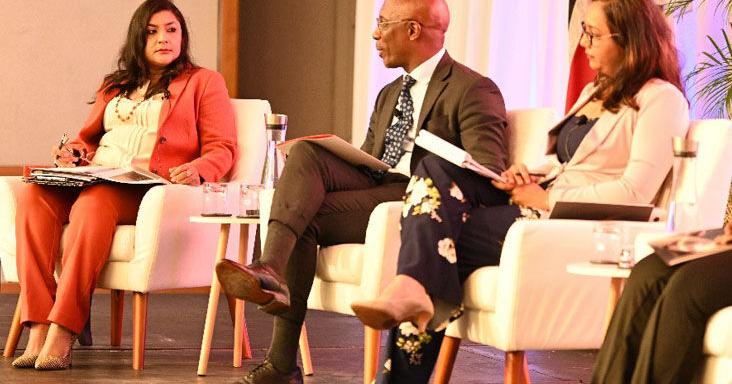Crime continues to disrupt businesses in the country and is tarnishing T&T’s international reputation, president of the Trinidad and Tobago Chamber of Industry and Commerce (TTCIC) Kiran Maharaj has said.
She said increased collaboration with other business service organisations and the Government is imperative.
Speaking at the TTCIC post-budget discussion yesterday at the Hyatt Regency (Trinidad), Port of Spain, Maharaj said: “Together, we must develop impactful solutions to crime—strategies that address both the immediate threats and the underlying causes that have long-term implications.
“We know that there is no one solution—we need to launch an attack that addresses all the arms of this chaotic octopus—in my mind, I see eight arms: socioeconomic factors; law enforcement; legislation and the Judiciary; prison system; community engagement; technology utilisation; policy coordination and education and youth prevention.”
She said the “ease of doing business” could no longer be considered a catchphrase because it was a lifeline for economic growth and opportunity for T&T.
“We must champion the implementation of solutions that streamline processes, reduce bureaucracy, and embrace digital innovations. By moving towards digital platforms, we not only enhance efficiency but also promote transparency and inclusivity in our economy,” Maharaj said.
Social services and
forex challenges
She said improving the business environment was insufficient to boost productivity if the gaps and breakages in T&T’s social infrastructure and education system were not examined.
“Our social services must be robust and responsive, ensuring that the most vulnerable among us are supported. Education, as the bedrock of any progressive society, requires urgent reform to equip our people with the skills and knowledge needed in today’s global economy,” Maharaj said.
She also called for the challenges of the foreign currency situation to be addressed with honesty and transparency.
In addition to this, she said the time has come to consider constitutional reform.
“Our governance structures must evolve to reflect the aspirations and needs of our society. A constitution that empowers and protects its citizens is foundational to our collective success.
“In this journey towards progress, we express our unwavering willingness to explore all avenues for public-private sector partnerships. Such collaborations are instrumental in driving innovation, infrastructure development, and social programs that uplift our people,” Maharaj said.

